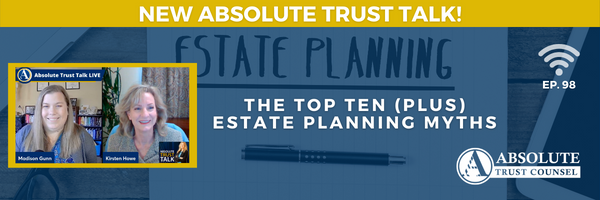Many couples are choosing to wait longer to get married, or choosing to not get married at all while sharing a life and co-owning property together. Estate planning can be especially important for unmarried couples in these situations. While marriage offers certain legal protections, unmarried couples face unique challenges when it comes to estate planning, particularly with jointly owned assets like a home. In California, without a valid estate plan in place, the property would typically pass to a deceased partner’s closest relatives, potentially leaving the surviving partner vulnerable to displacement or disputes.
Therefore, unmarried couples need to understand their options to protect their interests and ensure their wishes are honored upon their death or incapacity. There are several important factors for unmarried couples to consider in creating a comprehensive estate plan.
- Creating a Will or Trust
A will or trust is the foundation of any estate plan because it allows individuals to specify how they want their assets to be distributed upon their death. A trust offers additional benefits, such as avoiding probate. Unmarried couples may choose to create separate trusts or they may choose to create a joint trust together. Either way, the couple can specify how they would like their property to be distributed upon their death.
For example, if a woman jointly owns a home together with her long-term boyfriend, her trust can provide that her one-half interest in the home will pass to her boyfriend on her death if that is what she wishes. If, however, she would rather her interest pass to a family member or some other individual, her trust could also provide for that.
A trust can also provide for how a couple would like their property to be managed during their incapacity.
For example, a woman owns her home by herself, and her boyfriend lives in the home with her and pays her rent. If she became incapacitated, the woman wants her boyfriend to be able to continue living there, so she could provide in her trust that her boyfriend may continue to live in the home on the same financial terms as were in place before her incapacity.
Without clear guidelines in a trust or will, unmarried partners may find themselves in unforeseen difficult financial and living situations upon the death or incapacity of one partner.
2. Planning for Incapacity – Advance Health Care Directives and Durable Powers of Attorney
An Advance Health Care Directive allows partners to appoint each other as agents to make medical decisions on their behalf in the event of incapacity. A Durable Power of Attorney similarly allows partners to appoint each other to make financial and legal decisions on their behalf. Without these documents, unmarried partners may encounter obstacles in accessing medical information or managing finances during times of crisis. A partner may even have to go through a court process to be appointed to manage the affairs of their incapacitated partner. Therefore, it is imperative to create these legal documents before incapacity.
3. Titling Property
How property is titled can have significant implications for estate planning. Unmarried couples have several options, including joint tenancy, tenancy in common, or holding the property in a trust. Each option has its own legal and tax implications, and an experienced estate planning attorney can guide which arrangement best suits a couple’s circumstances and goals.
4. Designating Beneficiaries
Unmarried couples can ensure that assets pass directly to the surviving partner outside of probate by properly designating their partner as a beneficiary on accounts such as life insurance policies and retirement accounts. Couples may also utilize pay-on-death (POD) or transfer-on-death (TOD) accounts to ensure their bank and investment accounts pass to each other upon death. Couples must review and update their beneficiary designations to confirm that their wishes will be accomplished upon their death.
5. Creating a Cohabitation or Co-Ownership Agreement
While not strictly an estate planning document, a cohabitation or co-ownership agreement can be invaluable for unmarried couples. This legal contract outlines each partner’s rights and responsibilities regarding property ownership, finances, and other important matters. The agreement can also specify what will happen to the property if their relationship ends or if one partner passes away.
Estate planning can be complex, especially for unmarried couples with shared assets like a home. With careful planning and professional guidance from an experienced estate planning attorney, unmarried couples can protect their assets and provide peace of mind for themselves and their loved ones.
Whether you’re in a committed relationship, living together, or planning a life together, it’s crucial to safeguard the assets you and your partner share. Take the step towards peace of mind by establishing an estate plan tailored to your unique needs.
[AD] Estate planning addresses many important factors about your future and legacy. Where do you get started if you don’t have an estate plan in place? If you do, how have new laws and life transitions changed? Will your plan still protect you? Regardless, you deserve to have control over your wants, needs, goals, and hopes for the future. We can help you understand your options and, legally, how you will best be protected at all touchpoints. Get started today by scheduling a free discovery call so we can discuss your needs. Visit https://absolutetrustcounsel.com/scheduling/ or call us at (925) 943-2740.


